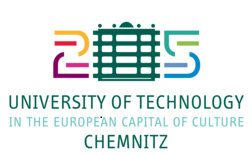Teacher Perceptions about the Culturally Responsive Education Approach of the Turkish Education System: Q Methodology Study
DOI:
https://doi.org/10.71514/jssal/2024.149Keywords:
Culturally responsive education, Turkish education system, education policies,, teacher opinionsAbstract
The aim of this study is to examine which issues teachers' perspectives focus on in culturally responsive educational practices within the Turkish education system, identifying points of consensus and disagreement, and exploring the reasons behind the most extreme statements. Q methodology was used to collect and analyze the data. Twenty-one volunteer teachers participated in the research. Q statements regarding culturally responsive education were created based on opinions in the literature. As a result of the analysis, it was found that teachers agreed with the statement "students' cultural competence skills for different cultures are increased." Conversely, teachers disagreed with the statement "measures are taken against discrimination towards different cultures." Teachers felt hesitant to share their opinions on the statements they strongly agreed or disagreed with due to the sensitivity of the subject. The research findings recommend that teachers be provided with concrete practices and good examples of culturally responsive education.
Downloads
References
Acquah, E. O., & Szelei, N. (2020). The potential of modelling culturally responsive teaching: pre-service teachers’ learning experiences. Teaching in Higher Education, 25(2), 157-173. https://doi.org/10.1080/13562517.2018.1547275
Akman, Y. (2020). Öğretmenlerin Mülteci Öğrencilere Yönelik Tutumları ile Çokkültürlü Eğitim Algıları Arasındaki İlişkinin İncelenmesi. Pamukkale Üniversitesi Eğitim Fakültesi Dergisi, 49, 247-262. https://doi.org/10.9779/pauefd.442061
Ang, S., Dyne, L. V., Koh, C., Ng, K. Y., Templer, K. J., Tay, C., & Chandrasekar, N. A. (2007). Cultural Intelligence: Its Measurement and Effects on Cultural Judgment and Decision Making, Cultural Adaptation and Task Performance. Management and Organization Review, 3(3), 335-371. https://doi.org/10.1111/j.1740-8784.2007.00082.x
Aniskin, V. N., Bogoslovskiy, V. I., Dobudko, T. V., Zhukova, T. A., & Pisareva, S. A. (2015). The prospects of multicultural education in Germany and Russia. Biomedical and Pharmacology Journal, 8(2), 1033-1041. https://dx.doi.org/10.13005/bpj/856
Aslan, M., & Kozikoğlu, İ. (2017). Öğretmenlerin Çokkültürlü Eğitime Yönelik Tutumları: Van İli Örneği. Dicle Üniversitesi Ziya Gökalp Eğitim Fakültesi Dergisi, 31, 729-737. https://doi.org/10.14582/DUZGEF.1829
Banasick, S. (2023). Ken-Q Analysis (Version 2.0.1) [Computer software]. https://doi.org/10.5281/zenodo.8310377
Banks, J. A. (2006). Race, Culture, and Education The Selected Works of James A. Banks. New York: Routledge. https://doi.org/10.4324/9780203088586
Barrett, M. (2013). Introduction – Interculturalism and multiculturalism: concepts and controversies, Interculturalism and Multiculturalism: Similarites and Differences (s. 15-42). Council of Europe Publishing.
Bell, S. T. (2007). Deep-level composition variables as predictors of team performance: A meta-analysis. Journal of Applied Psychology, 92(3), s. 595-615. https://10.1037/0021-9010.92.3.595
Bennett, C. I. (2011). Comprehensive Multicultural Education: Theory and Practice. Allyn & Bacon.
Brown, S. R. (1993). A primer on Q methodology. Operant subjectivity, 91-138.
Büyüköztürk, Ş., Çakmak, E. K., Akgün, Ö. E., Karadeniz, Ş., & Demirel, F. (2019). Eğitimde Bilimsel Araştırma Yöntemleri. Pegem Akademi.
Cameron, D. (2011). Speech to the Munich Security Conference.
Chen, L. (2016). Doing Q Methodological Research: Theory, Method and Interpretation. International Review of Research in Open and Distributed Learning, 17(3). https://www.proquest.com/docview/1792746006/fulltextPDF/5A0EE75BAEC34321PQ/1?accountid=14432&sourcetype=Scholarly%20Journals
Conrad, K., & Gezon, L. (2016). Kültür. (Ç. E. Gürsoy, Çev.) Nobel Akademik Yayıncılık.
Çalışkan, H., & Gençer, R. (2016). Sosyal Bilgiler Öğretmen Adaylarının Çokkültürlü Eğitime İlişkin Tutum Düzeylerinin İncelenmesi. V. Sakarya’da Eğitim Araştırmaları Kongresi (s. 52-63). Sakarya: Sakarya Üniversitesi Eğitim Bilimleri Enstitüsü.
Çelik, O. T. (2020). Kültürel Çeşitlilik ve Eğitim, Kültürel Değerlere Duyarlı Eğitim (s. 13). Anı Yayıncılık.
Dagkas, S., & Benn, T. (2006). Young Muslim women's experiences of Islam and physical education in Greece and Britain: a comparative study. Sport, Education and Society, 11(1), 21-38. https://doi.org/10.1080/13573320500255056
Esen, H. (2009). An Analysis of Public Primary School Teachers’ Dealing with Difference in the Absence of a Multicultural Education Policy in Turkey. Unpublished Master Thesis
European Migration Network. (2023). Annual Report on Migration and Asylum 2022. EMN Report.
Gay, G. (1994). A Synthesis of Scholarship in Multicultural Education. North Central Regional Educational Laboratory.
Gay, G. (2000). Culturally responsive teaching: Theory, research, and Practice. Teachers College Press.
Gay, G. (2002). Preparing for Culturally Responsive Teaching. Journal of Teacher Education (53), s. 106-116. https://doi.org/10.1177/0022487102053002
Gorski, P. C. (2023). 7 Key Characteristics of a Multicultural Education Curriculum. EdChange Building Equitable and Just Schools, Communities, and Organizations through Transformative Action: http://www.edchange.org/multicultural/resources/ct_characteristics.html
Günay, R., & Aydın, H. (2015). Türkiye’de Çokkültürlü Eğitim İle İlgili Yapılan Araştırmalarda Eğilim: Bir İçerik Analizi Çalışması. Eğitim ve Bilim, 40(178). http://dx.doi.org/10.15390/EB.2015.3294
Gür, G. (2002). Yaşlanan Kıta Avrupa Almanya Nereye Gidiyor? Anadolu Üniversitesi İktisadi ve İdari Bilimler Fakültesi Dergisi, 18(1), s. 215-225.
Howard, T. C. (2010). Why Race & Culture Matter in Schools: Closing the Achievement Gap in America's Classrooms. Teachers College Press.
Karaca, F. (2018). Türkiye'de ve Dünyada Çokkültürlülük ve Eğitim. The Journal of Academic Social Science Studies (72), 25-40. http://dx.doi.org/10.9761/JASSS7929
Karacabey, M. F., Ozdere, M., & Bozkus, K. (2019). The Attitudes of Teachers towards Multicultural Education. European Journal of Educational Research, 8(1), 383-393. https://doi.org/10.12973/eu-jer.8.1.383
Kaya, Y., & Söylemez, M. (2014). Öğretmenlerin Çokkültürlülük Ve Çokkültürlü Eğitim Hakkındaki Görüşlerinin Belirlenmesi: Diyarbakır Örneği. Dicle Üniversitesi Sosyal Bilimler Enstitüsü Dergisi (11), 128-148.
Kenward, L. (2023). A literature review to guide novice researchers using Q methodology in the development of a framework for concourse management. Nurse Researcher, 31(3). 10.7748/nr.2019.e1616
Koçyiğit, E., & Şimşek, H. (2019). Kapsayıcı Eğitim Bağlamında Türkiye'de Ortaöğretim Programlarında Çokkültürlülüğün İzleri. Kuram ve Uygulamada Sosyal Bilimler Dergisi, 3(2), 75-90.
KONDA. (2019). Türkiye 100 Kişi Olsaydı. KONDA Araştırma ve Danışmanlık. https://interaktif.konda.com.tr/turkiye-100-kisi-olsaydi
Köktürk, M. (2006). Kültürün Dünyası / Kültür Felsefesine Giriş. Hece Yayınları.
MEB. (2017). Çan İlçe Milli Eğitim Müdürlüğü: https://can.meb.gov.tr/meb_iys_dosyalar/2017_03/31115331_S28BW-5e17032815120.pdf
MEB. (2022). Kapsayıcı Eğitim Öğretmen Eğitimi Modülü Öğretmen Eğitimleri Projesi. Öğretmen Yetiştirme ve Geliştirme Genel Müdürlüğü : https://oygm.meb.gov.tr/www/kapsayici-egitim-ogretmen-egitimi-modulu-projesi/icerik/1001
Merkel, A. (2010). Speech to the Conference of the Youth Wing of the Christian Democratic Union party.
Milner, H. R. (2006). Preservice Teachers’ Learning about Cultural and Racial Diversity: Implications for Urban Education. Urban Education, 41(4), 343-375. https://doi.org/10.1177/0042085906289709
Nayir, F., & Kuru-Çetin, S. (2018). Üniversite Öğrencilerine Göre Çokkültürlü Eğitim ve Demokrasi. Akdeniz Eğitim Araştırmaları Dergisi, 12(24), s. 229-252. https://10.29329/mjer.2018.147.13
Nayir, F., & Sarıdaş, G. (2020). Çokkültürlü Eğitim, Kültürlerarası Eğitim ve Kültürel Değerlere Duyarı Eğitime İlişkin Kavramsal Bir İnceleme. Uluslararası Sosyal Araştırmalar Dergisi, 13(70), 769-779.
Rachmadtullah, R., Syofyan, H., & Rasmitadila, R. (2020). The role of civic education teachers in implementing multicultural education in elementary school students. Universal Journal of Educational Research. http://repository.unida.ac.id/id/eprint/1058
Sarıdaş, G., & Nayir, F. (2022). Türkiye’de Kültürel Değerlere Duyarlı Eğitimin Stratejik Planlar Doğrultusunda İncelenmesi. Eğitimde Nitel Araştırmalar Dergisi, 31, 85-111. https://10.14689/enad.31.1604
Sarkozy, N. (2011). Televised interview, Paroles de Français, TF1.
Seban, D., & Uyanık, H. (2016). Türkiye’de Çokkültürlü Eğitim: 1-5. Sınıf Programlarında Yer Alan Kazanımların Analizi. Pegem Journal of Education and Instruction, 6(1), 1-18.
Semple, E. C. (2023). Influences of Geographic Environment. On the Basis of Ratzel's System of Anthropo-Geography. Good Press.
Taştekin, E., Yükçü, Ş. B., İzoğlu, A., Güngör, İ., Uslu, A. E., & Demircioğlu, H. (2016). Okul öncesi öğretmenlerinin çokkültürlü eğitime yönelik tutumlarının ve algılarının incelenmesi. Hacettepe Journal of Educational Research, 2(1), 1-20.
Taş Yetim, H. (2015). Erken Cumhuriyet Döneminde Kürt Sorunu (1920-1938): Bir Güvenlikleştirme Analizi (Unpublished Master Thesis). Sakarya University
Thomas, D. C. (2006). Domain and Development of Cultural Intelligence the Importance of Mindfulness. Group & Organization Management - GROUP ORGAN MANAGE, 31, 78-99. https://doi.org/10.1177/1059601105275266
Turkish National Education Basic Law. (1973). T.C. Resmi Gazete (Kanun No:1739 Sayı:14574).
Turhan, M. (1994). Kültür Değişmeleri. FAV Yayınları.
TÜİK. (2023, 12 08). Yabancı Kontrollü Girişim İstatistikleri. Türkiye İstatistik Kurumu: https://data.tuik.gov.tr/Bulten/Index?p=Yabanci-Kontrollu-Girisim-Istatistikleri-202149762#:~:text=Bu%20istatistikteki%20ekonomik%20g%C3%B6stergeler%20T%C3%BCrkiye,alan%20giri%C5%9Fim%20verilerinden%20elde%20edilmi%C5%9Ftir.&text=Yabanc%C4%B1%20kontroll%
Usta, M. (2020). Multiculturalism in Education: Science of Life and Social Studies Primary School Books on a Qualitative Review. Journal of Social, Humanities and Administrative Sciences, 6(34), 2178-2198.
Villegas, A. M., & Lucas, T. (2002). Preparing Culturally Responsive Teachers: Rethinking the Curriculum. Journal of Teacher Education, 53(1), 20-32. https://doi.org/10.1177/0022487102053001003
Yazıcı, S., Başol, G., & Toprak, G. (2009). Öğretmenlerin Çokkültürlü Eğitim tutumları: Bir Güvenirlik ve Geçerlik Çalışması. Hacettepe Üniversitesi Eğitim Fakültesi Dergisi, 37, 229-242.
YÖK. (2018). Öğretmen Yetiştirme Lisans Programları. Yüksek Öğretim Kurulu: https://www.yok.gov.tr/bir/idari-Birimler/egitim-ogretim-dairesi/yeni-ogretmen-yetistirme-lisans-programlari
Downloads
Published
How to Cite
Issue
Section
License
Copyright (c) 2024 Osman Barutçu, Gürkan Sarıdaş, Funda Nayir

This work is licensed under a Creative Commons Attribution-NonCommercial 4.0 International License.
The work is made available under the terms of the Public Offer and the Creative Commons Attribution 4.0 International License (CC BY 4.0). This license allows anyone to reproduce, distribute, and adapt the material in any medium or format, including for commercial purposes, provided that proper credit is given to the creator(s) and the original source.












